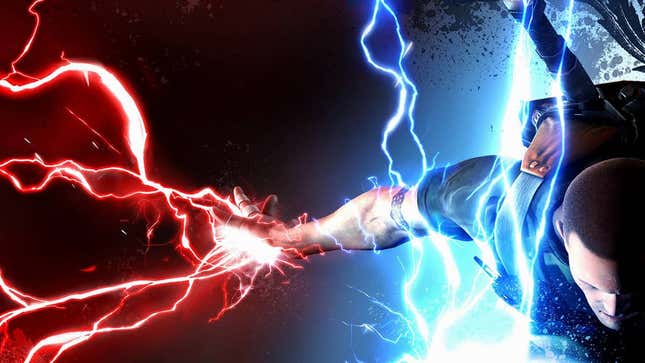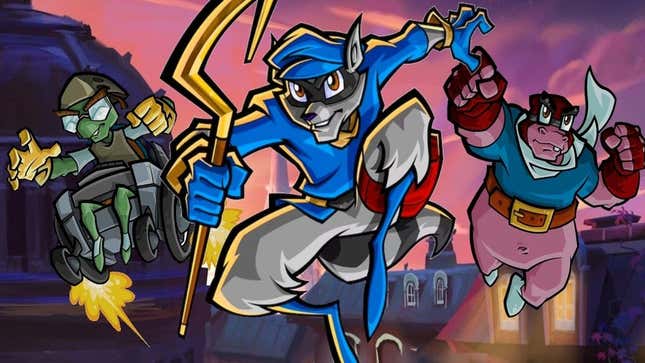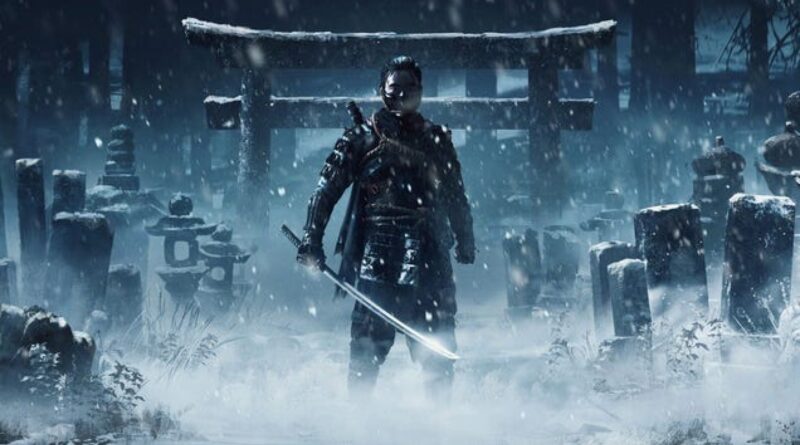Ghost of Tsushima Gave Sucker Punch the Spotlight It Always Deserved
Ask anyone who plays video games extensively, and they more than likely have at least two studios they go to bat for. We all have developers who, in our eyes, can’t really do any wrong (even though they can and sometimes do); maybe it’s because they were responsible for a life-changing gaming experience, or maybe it’s just that their output has consistently been really good for most or all of their (and our) existence.
Unboxing Marvel’s Spider-Man 2 Limited Edition Playstation 5 Bundle
For me, one of those studios is Sucker Punch Productions, whose most recent game, Ghost of Tsushima, came to PC this week. When it first released in 2020 as a PlayStation 4 exclusive, practically took the world by storm. Not only is a movie adaptation in the works, it’s one of the fastest-selling original titles in Sony’s lineup, and it really took off in Japan. Toshihiro Nagoshi, executive director on the Like a Dragon games, praised Sucker Punch for Tsushima’s historical accuracy and immersion (among other things), even going so far as to say it should’ve been made in Japan. The western release of 2023’s Like a Dragon: Ishin! came about because of Tsushima’s worldwide success, and you can imagine it’s what also got some people onboard with FX’s Shōgun.
In 2020, Tsushima’s release was for Sucker Punch what a first time leading role is for a character actor who’s largely been defined by supporting roles. The studio’s output has always ranged from generally solid to great, but those games arguably never got the full credit (or space) they deserved. Its second game, Sly Cooper & the Thievius Raccoonus for the PlayStation 2, showed it’d be a studio worth keeping an eye on. Across two sequels released in 2004 and 2005, the cartoony platformer series earned solid critical and commercial acclaim. But as the PS2’s Big Three alongside Naughty Dog’s Jak & Daxter and Insomniac Games’ Ratchet & Clank, the Sly games were easily overlooked: they lacked the other pair’s naughty edge, to say nothing of how those two franchises already had an in with PlayStation fans due to their studios’ respective series, Spyro and Crash for the original PlayStation.

With the PlayStation 3, Sucker Punch shifted gears from cartoon furries to grounded superheroes. The Infamous games—whose first entry turns 15 at the end of May—felt like a breath of fresh air back in the day, largely due to how there wasn’t much in the way of superhero games in the early 2010s. Those games weren’t revolutionary so much as they made good on the fantasy of having superpowers in a world built around them. So beloved were the adventures of Cole McGrath, Delsin Rowe, and Abigail Walker (the latter two respectively headlined 2014’s Infamous Second Son and First Light) that everyone automatically believed Sucker Punch would go on to make a Spider-Man game before it turned out that was being handled by Insomniac. But it was a case of second verse, same as the first; between Uncharted and The Last of Us over at Naughty Dog, and Insomniac’s one-two punch of Ratchet & Clank and Spider-Man, Sucker Punch again got a little left in the lurch.
Sucker Punch games haven’t always had the prestige or scope of its sibling studios, but it’s made up for with strong fundamentals and a lot of heart. It’s been owned by Sony for over a decade, but it’s seemingly been able to do its own thing and not get caught up in live-service plans or forced as a support studio for a larger enterprise. I hope it stays that way, if only because that type of developer freedom is gradually going away in the triple-A space. Earlier in May, Microsoft abruptly closed down several internal studios, including Hi-Fi Rush developer Tango Gameworks. Undoubtedly, that game is for a younger player what Sly 2 was for me, a game that makes them take notice of a developer and follow their work…which they won’t be able to do anymore, because Tango was closed down for unclear and ultimately unsatisfying reasons.

Developers like Tango and Sucker Punch, and their respective games, help bolster (and add flavor to) the first-party lineups of their parent companies. No franchise has been born overnight, and the profit-first mentality of all publishers is gradually killing developers and the projects they work on. The fact is, as well as Tsushima sold and however well its eventual sequel does, a chance exists for Sucker Punch to go away at the drop of a hat. It may have been seemingly shielded from PlayStation’s layoffs in February, but things can change, and simply being a developer who “does everything right” no longer matters.
Ghost of Tsushima is easily Sucker Punch’s biggest success story, and put it in the A-team of PlayStation studios. Whenever that sequel comes out, it’ll mark our first glimpse of what the developer’s new status really means for its future and that of PlayStation’s larger first-party output. The samurai game isn’t Sucker Punch’s best—that would be either Sly 2 or Infamous 2, both of which should be ported to PC—but it’s one of the studio’s most important, regardless of which way the wind blows.
Want more io9 news? Check out when to expect the latest Marvel, Star Wars, and Star Trek releases, what’s next for the DC Universe on film and TV, and everything you need to know about the future of Doctor Who.

